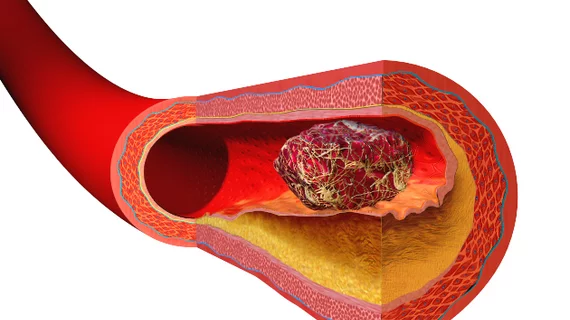The FDA announced Feb. 6 it has approved Cablivi (caplacizumab-yhdp) for the treatment of adults with acquired thrombotic thrombocytopenic purpura (aTTP), a rare blood-clotting disorder.
Cablivi is the first therapy for aTTP indicated as an add-on to the current standard of plasma exchange and immunosuppressive therapy, according to the announcement.
“Patients with aTTP endure hours of treatment with daily plasma exchange, which requires being attached to a machine that takes blood out of the body and mixes it with donated plasma and then returns it to the body,” Richard Pazdur, MD, acting director of the Office of Hematology and Oncology Products in the FDA’s Center for Drug Evaluation and Research, said in a statement. “Even after days or weeks of this treatment, as well as taking drugs that suppress the immune system, many patients will have a recurrence of aTTP.
“Cablivi is the first targeted treatment that inhibits the formation of blood clots. It provides a new treatment option for patients that may reduce recurrences.”
The rare condition can be developed because of other conditions such as cancer, HIV, pregnancy or infections, or after having chemotherapy, surgery or bone marrow transplantation, according to the FDA. Blood clots caused by aTTP can lead to heart attacks and strokes.
The FDA’s approval of Cablivi was supported by a 145-patient trial, which showed those randomized to the injected nanobody were less likely to have a recurrence of aTTP (13 percent) versus those randomized to a placebo (38 percent).
Common side effects of the drug include bleeding from the nose and gums and headache. The FDA advised healthcare providers to monitor patients for bleeding events if they’re also taking anticoagulants, and a warning about the risk of severe bleeding is included in the prescribing information.
Sanofi, which acquired the drug through buying Ablynx last year, said the drug will hit the market late in the first quarter of 2019 and will cost $270,000 to treat a typical episode of aTTP before rebates and discounts, according to FiercePharma.

